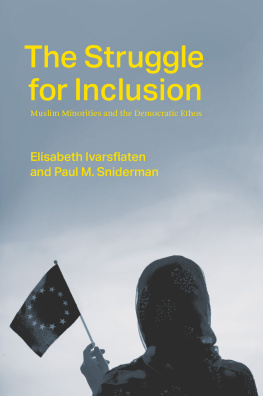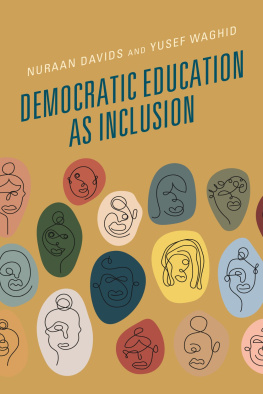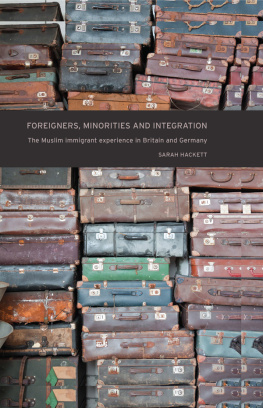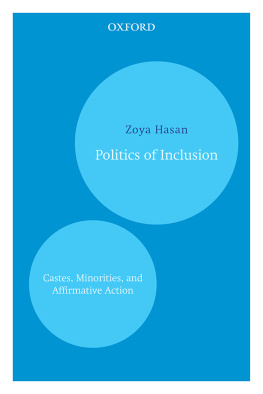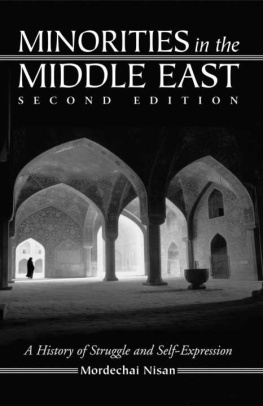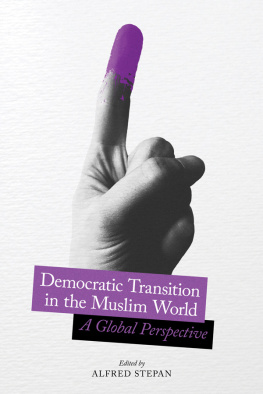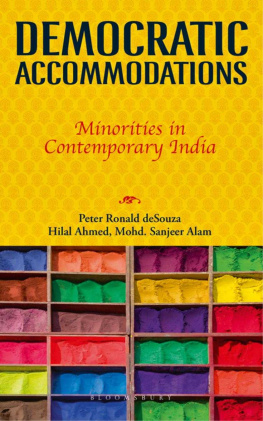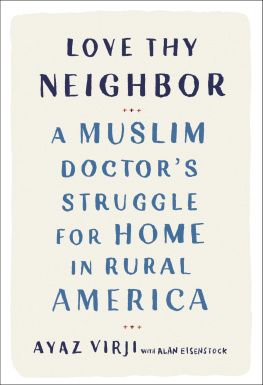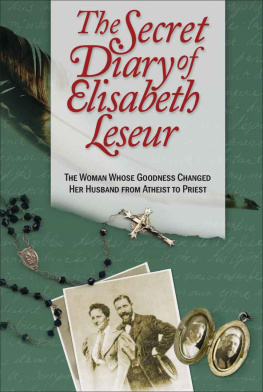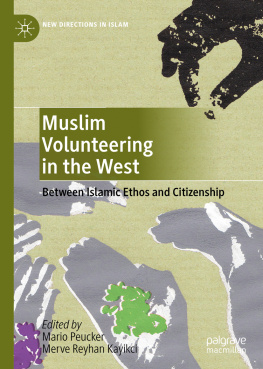The Struggle for Inclusion
The Struggle for Inclusion
Muslim Minorities and the Democratic Ethos
Elisabeth Ivarsflaten and Paul M. Sniderman
The University of Chicago Press
CHICAGO & LONDON
The University of Chicago Press, Chicago 60637
The University of Chicago Press, Ltd., London
2022 by The University of Chicago
All rights reserved. No part of this book may be used or reproduced in any manner whatsoever without written permission, except in the case of brief quotations in critical articles and reviews. For more information, contact the University of Chicago Press, 1427 E. 60th St., Chicago, IL 60637.
Published 2022
Printed in the United States of America
31 30 29 28 27 26 25 24 23 22 1 2 3 4 5
ISBN-13: 978-0-226-80724-9 (cloth)
ISBN-13: 978-0-226-80741-6 (paper)
ISBN-13: 978-0-226-80738-6 (e-book)
DOI: https://doi.org/10.7208/chicago/9780226807386.001.0001
Library of Congress Cataloging-in-Publication Data
Names: Ivarsflaten, Elisabeth, author. | Sniderman, Paul M., author.
Title: The struggle for inclusion : Muslim minorities and the democratic ethos / Elisabeth Ivarsflaten and Paul M. Sniderman.
Description: Chicago : The University of Chicago Press, 2022. | Includes bibliographical references and index.
Identifiers: LCCN 2021034638 | ISBN 9780226807249 (cloth) | ISBN 9780226807416 (paperback) | ISBN 9780226807386 (ebook)
Subjects: LCSH: MuslimsCultural assimilationEurope. | EuropeEthnic relations.
Classification: LCC D1056.2.M87 I88 2022 | DDC 940.088/297dc23
LC record available at https://lccn.loc.gov/2021034638

This paper meets the requirements of ANSI / NISO Z39.48-1992 (Permanence of Paper).
For Miriam and Eva, a gift to the future,
and Suz, in this as in all else, my lifeline
Contents
A Note on Methodology and Data
Appendix: A Methodological Note on the Validity of the IMCP Measure
A note on the trial figures: All confidence intervals are 95 percent. All black/white figures show the results from ANOVA-tests. All IMCP figures show the results from probit models. Data source, field period, and N for each figure are noted in the appendix.
An early PEGIDA slogan posted on the anti-Islamic website Gates of Vienna (2014)
Comment made by one of the members of an open Facebook group in Norway entitled Bring Christian Tybbing-Gjedde into Government (2015)
One entry in a discussion on the open white supremacist webforum Stormfront in the UK (2015)
The Differentiation Experiment
Affirmation of Diversity
Public Affirmation of Diversity
Respect for Muslim Culture: First Trial
Respect for Muslim Culture: Follow-up Trials
Recognition Respect vs. Appraisal Respect
Respect Principles by Inclusive Tolerance
Hate Speech vs. Offensive Speech: First Trial
Hate Speech vs. Offensive Speech: Evenhandedness
The May/Should Distinction: The Unreasonable Letters Trial
The May/Should Distinction: The Contemptuous Speech Trial
The May vs. Should Distinction by Inclusive Tolerance
The Textbook Experiment: The First Two-Letter Trial
The Textbook Experiment: The Second Two-Letter Trial
The Counterfactual Textbook Experiment
Continuity vs. Interruption in the Process of National Identity Construction
The Principle of Continuous Construction: Additional Test
The Continuity Principle by Inclusive Tolerance
The Asylum Seeker Sequence: The Pre-Crisis Trial
The 2015 Refugee Crisis in Norway
The Asylum Seeker Sequence: The Crisis Trial
The Asylum Seeker Sequence: The Generalizability Trial
The Seat at the Table Experiment: Diverse vs. Homogeneous Regional Council
Preference for Diverse or Homogeneous Regional Council by Inclusive Tolerance
The Election Day Poll Volunteer Experiment
Standards for Propriety and Discretion for Christians and Muslims by Inclusive Tolerance
Conflict between Liberal Values: The Public Rally Experiment
Opposition to Public Rally by Inclusive Tolerance
Bad Faith in Muslim Leaders by Inclusive Tolerance
Bad Faith in Muslim Leaders: Follow-up Trial
Bad Faith in Muslim Leaders: Final Extension Trial
A conference in Bergen in 2013 brought us together. On the spur of the moment, we decided on collaboration. We had a conjecture: more ordinary citizens were open to being inclusive than had been recognized. If true, manifestly important. And we had an idea: the willingness of majority citizens to be inclusive depends on what being inclusive asks of them. Yes, a simple idea, but reasoned out, it points to a different way of theorizing about issues of choice in the politics of cultural and religious diversity. A willingness to be inclusive of Muslims partly depends on how positively or negatively citizens who are not themselves Muslim feel about Muslims, how favorably or unfavorably they view them. But the political outcome, in favor of or opposed to inclusion, our results show, depend on the specific substantive options for inclusion on offer and, above all, on their fit with widely shared normative premises of contemporary liberal democracies.
And to turn this from idea to testable hypotheses, we have had the extraordinarily good fortune of being able to use the Norwegian Citizen Panel (NCP) to collect data. We will say a lot about the NCP later. What needs to be said up front is that the NCP gave us the opportunity to introduce a different approach to the study of public opinion. The NCP conducts multiple waves of interviews with a nationally representative sample of Norwegians. That meant that we could take one step, then another, then yet another. That is how the idea of our method, which we call sequential factorials, came to us.
The social sciences face a crisis of replication. Too often, if a study is repeated, the second set of results does not match the first. Investigators are forced to choose between two paths. They can do the same study again to see if the third set of results confirms those of either the first or the second. Alternatively, they can move forward with a different study and attempt to make a new discovery. But since they have limited resources, they (almost always) cannot do both; and learning more (almost always) trumps showing that what was learned was truly learned. This study introduces a methodological innovation to resolve the trade-off between discovery and replication. The key is a repeatable template for randomized experiments: in each trial, we introduce new treatments to take a step forward while, simultaneously, repeating previous treatments to assess the replicability of results from previous steps.
The result has been the adventure of two careers. An adventure is an undertaking that is exciting, in part, because its outcome is not known in advance. But adventures are also exciting because their outcomes matter. So it is here. Our results point to possible paths forward to a more inclusive society.
Introduction
This book is about whether contemporary liberal democracies are capable of becoming more fully, more truly inclusive. Its focus is the readiness of non-Muslim majority citizens to include Muslim minorities. It is unlike what we, and most other scholars of the politics of cultural and religious diversity, have done before. The aim is
 This paper meets the requirements of ANSI / NISO Z39.48-1992 (Permanence of Paper).
This paper meets the requirements of ANSI / NISO Z39.48-1992 (Permanence of Paper).
